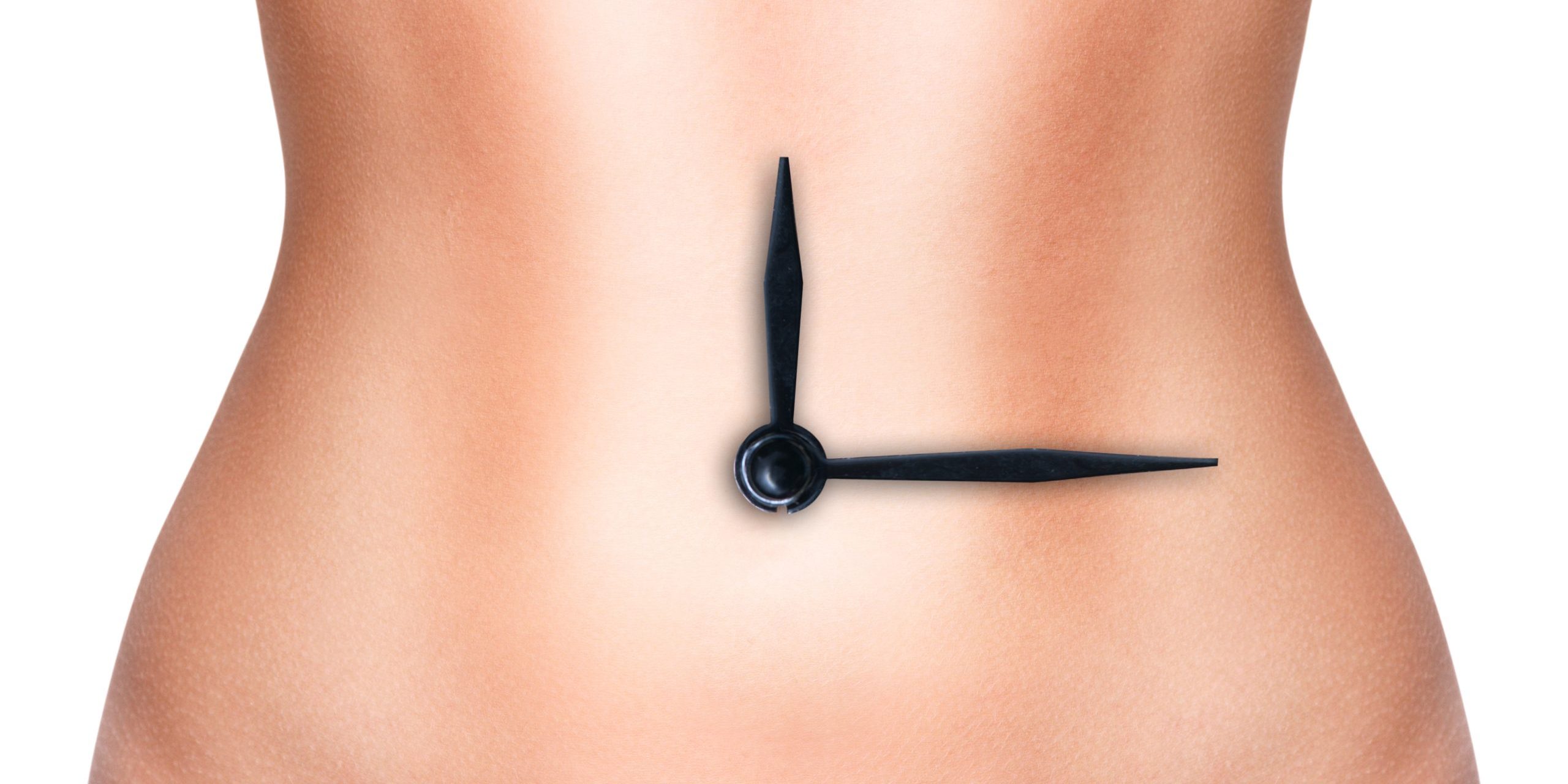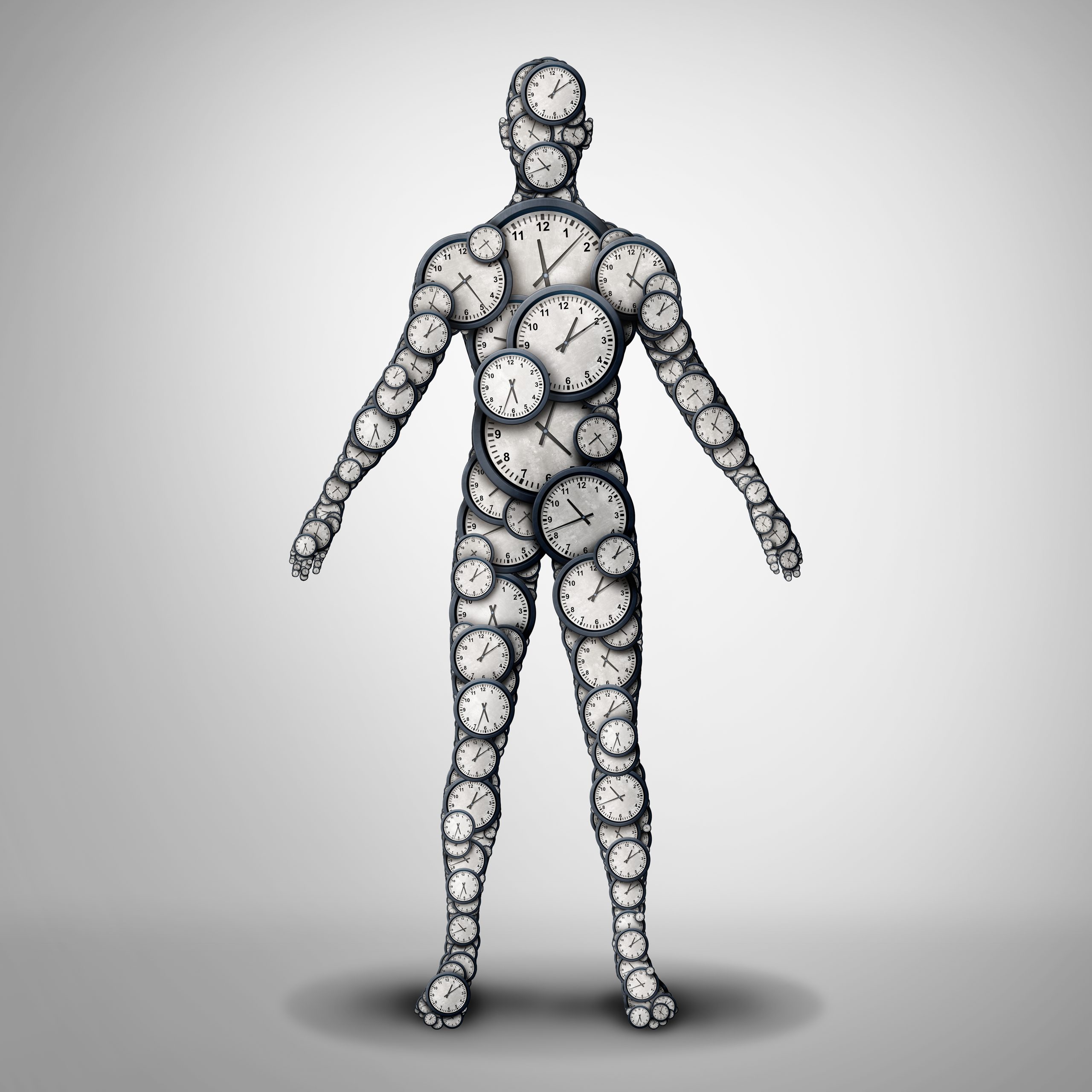We’re all aware of the importance of watching what we eat.
But what about when we eat?
Modern life has changed when we eat and disrupted our body clocks and health.
Here’s how and what we can do about it.
Our body clocks
Yes, clocks – plural. We have more than one.
Most of us know we have one body clock. This is our central clock that’s located in our brain. It uses light passing through the retina in our eyes to control our circadian rhythm – things like our sleep-wake and body temperature cycles over 24-hour periods. We really know about this clock when we disrupt it with travel and suffer jet lag.
What we don’t tend to realise is that we also come fully kitted out with a whole host of peripheral clocks spread throughout most of our body’s tissues. Whilst they have their own specialist functions, they’re designed to work in sync with our central clock. And that’s where our eating behaviour can throw a spanner in the works.
How we tick
See these peripheral clocks aren’t only regulated by the night-day, sleep-wake cycle of our central clock. They’re also governed by our fasting-feeding cycle. It’s actually a logical design (as evolution tends to be). For most of human history eating happened during the day when it was light while sleeping occurred at night when it was dark. This meant the sleep-wake cycle was in-tune with the fasting-feeding cycle. All of our body clocks were right on time.
But we live in a different time (pun intended). Our lives aren’t so constrained by time in the day/night sense. We have electricity. We’re free to live beyond the bounds of daylight. There’s no need to go to sleep once darkness sets in because there’s nothing else to do. We can turn on a light and stay up late into the night or the early hours of the morning. We can also eat at any hour of the day or night. We’ve even installed a light inside refrigerators for late-night snacking.
While these changes suit our busy schedule, they don’t really suit our biology. Eating at irregular times – especially those skipped breakfasts and late dinners typical of modern life – is mucking around with our body clocks. It uncouples the synchronisation between our central and peripheral body clocks. And it’s contributing to metabolic deregulation and lifestyle diseases like obesity, type 2 diabetes and cardiovascular disease.
Recalibrating the clocks
So what can we do? We obviously can’t change modern life in order to recouple our body clocks. But some attention towards when and what we eat can really help. In fact, there’s a whole new area called chrono-nutrition that’s dedicated to the timing of food in relation to our body’s natural rhythms.
- Keep the majority of your eating to daylight hours and minimise or avoid the late-night snacking when we’re meant to be sleeping. This will help to create an optimal fasting period and help us to feed upon waking (you know, break-fast).
- Avoid excessive intake of fat, sugar, salt and caffeine as they have shown to delay our peripheral clocks
- Eat lean protein, unrefined complex carbohydrates, unsaturated fatty acids, antioxidants and fibre to help reset those peripheral clocks







